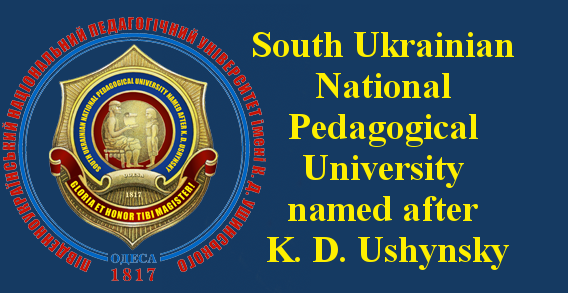On January 23-24, the International Scientific and Practical Conference “THE PROBLEM OF GENOCIDE: CHALLENGES OF MODERN SOCIETY” was held.
A large number of organizers, including the state institution “South Ukrainian National University named after K.D. Ushynsky, the Department of Philosophy, Sociology and Management of Socio-Cultural Activities of Ushynsky University, the Museum of Genocide “Territory of Memory”, universities in the USA, Israel and Romania, and public organizations, testified to the painful nature of the problem of genocides. A large number of interesting reports were heard.
The Rector of Ushynsky University, Doctor of Historical Sciences, Professor Andriy KRASNOZHON noted the great importance of the study of genocides, the role of archaeology in the evidence of mass crimes in the historical past, the painful problem of the existence of Transnistria in 1941-1944 for the city of Odesa. The Vice-Rector for Scientific Work of Ushynsky University, Doctor of Political Sciences, Professor Hanna MUZYCHENKO emphasized the significant role of political will in preventing genocides in the modern era. The Chairman of the Board of the Public Organization "Odesa Holocaust Research Center", PhD in Philosophy Pavlo KOZLENKO noted the uniqueness of the Genocide Museum "Territory of Memory", which studies genocides in the history of mankind, and emphasized the role of morality in modern society. The Vice-President of the Ukrainian Association of International Law, PhD in Law Sciences Timur KOROTKY analyzed the problem of evidence of genocide in the legal sphere. The moderator of the plenary session, the head of the Department of Philosophy, Sociology and Management of Socio-Cultural Activities, Yevhen BORINSHTEIN, noted the great importance of awareness in society of the inevitability of punishment for genocide and analyzed in detail preventive measures regarding the development of genocides.
Particular attention at the conference was paid to the problem of the Holodomor-Genocide of Ukrainians in 1932-1933. Thus, the report “The Activities of the International Commission of Jurists in 1988 as the First Step to the Legal Assessment of the Holodomor-Genocide of 1932-1933” was delivered by the well-known scientist, Doctor of Historical Sciences, Professor, Head of the Department of History of World Ukrainians of the Taras Shevchenko National University of Kyiv, Chairman of the International Association of Holodomor-Genocide Researchers, Academician of the Academy of Sciences of Higher Education of Ukraine Volodymyr SERHIYCHUK. The problematic issues of recognizing and honoring the memory of the victims of the Holodomor-genocide at the state level were analyzed by Olesya STASYUK, Doctor of Historical Sciences, Professor, Head of the National Association of Researchers of the Holodomor-genocide of Ukrainians, Honored Worker of Culture of Ukraine. The important role of the Holodomor of 1932-1933 as a genocide of the Ukrainian people was shown by Andriy KOZYTSKY, PhD in History, Associate Professor of the Department of World History of Modern Times at the Ivan Franko National University of Lviv.
A significant part of the conference was devoted to the problem of understanding genocides as such. Doctor of Philosophical Sciences, Dean of the Faculty of Preschool Education and Music of the Lutsk Pedagogical College of the Volyn Regional Council, Nataliya IVANOVA, noted the role of the energy of love as a “three-sun unity” in countering the genocides of the 20th-21st centuries. The specifics of genocidal communication were analyzed by Olha VYSOTSKA, Doctor of Philosophy, Professor, Head of the Philosophy Department of the Municipal Institution of Higher Education “Dnipro Academy of Continuing Education” of the Dnipro Regional Council. Particular attention was paid to the report of Viktoriya MALKO, Doctor of History, Lecturer in the History Department of the California State University, Fresno, “The Evolution of Russian Genocide against Ukrainians in the Twenty-First Century” on the evolution of the Russian genocide against Ukrainians in the 21st century.
It is important to note that within the framework of the scientific circle "School of Logistics", the scientific community heard vivid performances by postgraduate students of specialty 033 Philosophy, students of specialties 028 Management of Socio-Cultural Activities (1-4 years) and specialties 032 History and Archaeology, who were fruitfully prepared thanks to the Department of History of Ukraine.






